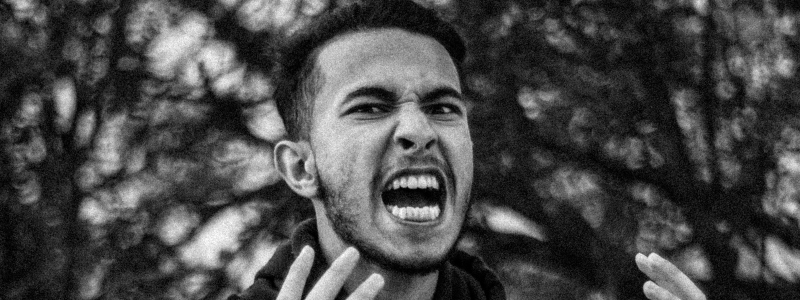This is a common question clients ask therapists.
Sometimes clients describe having mood swings, one minute they are feeling fine and the next are feeling very low, and for others it can be suddenly feeling irritable or angry. Sometimes there is an obvious trigger to the change in mood but often clients report no trigger, just a general feeling of their mood having changed.
Understandably this can feel frustrating as well as being difficult for those around them – clients often say that their mood swings impact on their relationships.
In therapy we might start by looking at the bigger picture. We might ask the client if this is something they have always experienced or is relatively new. It could be that there has been a build-up of stressors or that the client’s work-life balance has become unbalanced, and so as stress has increased it has become more difficult to manage their moods. Often stress can creep up on us. We have an expectation that we can maintain a permanent level of ‘doing’ however this isn’t true. Often people think because they used to do all these things they should be able to keep on doing all these things. We can often compare ourselves to how we used to be and hold an expectation that we should be able to keep going. However, stress can accumulate and over time this can become more difficult to manage. The analogy of the stress bucket is useful here. If you imagine the size of the bucket represents a person’s stress tolerance and this is influenced by personality, genetics, upbringing and experience. The bucket fills up with stressors from home, work, family, finances, illnesses etc. When the bucket is full up it can lead to problems such as low mood, anxiety, fatigue, headaches, sleep disturbance and overwhelm. We need strategies to stop the bucket overflowing.
This is where therapy can help. Together we can explore stress management strategies and talk through the stressors. Often difficult experiences build up and we don’t allow ourselves time to properly process them.
For others it could be that they have always found it difficult to manage their emotions. This could be because they’ve never really learnt to manage difficult emotions and so they struggle with tolerating them. Sometimes unhealthy ways to manage develop such as drinking too much alcohol, comfort eating, sleeping or taking drugs. These are different ways to avoid feeling difficult emotions. However, these only work in the short term, can be difficult to give up and can lead to mental health difficulties such as depression, anxiety and low self-esteem.
Cognitive behavioural therapy (CBT) is an effective treatment in managing emotions. It looks at the interaction between our thoughts, moods, physical symptoms and behaviours. It can be useful to use the basic CBT model to start to breakdown what’s going on when you first notice the shift in emotion/mood. When you first notice that shift in your mood ask yourself what was going through my mind at the time, what were the words my mind was saying (i.e. your internal dialogue); name the moods/emotions that you were feeling at the time (there can be more than one mood); how were you feeling inside of your body, what were the physical sensations; and what is it you were doing or not doing (behaviours). Also try to identify the trigger, what were you reacting to? Was it an event or situation or was it that you started to think about something, and this triggered a shift in your mood. By breaking down your experience in this way we can really look at what is going on. We can start to identify early signs and symptoms that happen when your mood changes. We can look at what might be unhelpful in the way you are thinking that could inadvertently be maintaining the cycle. We can see what you are doing or not doing that also might be contributing to maintaining the cycle.
It can help to write these answers down. The process of recording can help to give us clarity and can be a strategy in its own right. Once we have gathered this information and identified what’s unhelpful, we can start to look at ways to make changes, what might be more helpful.
Noticing your emotions and naming your feelings can be useful, but it’s not always easy to do this if it’s something you’re not used to doing. When we notice physical sensations happening in our body, we can think about why these might be happening. Was it that you were thinking of something that’s happened in the past or worrying about something in the future? Or was it that you were feeling a certain way and started to give a meaning to what you were feeling? How we are thinking impacts on how we feel emotionally and physically. Just as how we are feeling in our mood and in our body will impact on how we think.
When managing our emotions it’s important to be kind to ourselves: to think self compassionately; to treat ourselves how we would treat others; to forgive ourselves when we make mistakes; and not give ourselves a hard time when we don’t achieve everything we would’ve liked to. Be mindful of the way we talk to ourselves. We need to accept our different emotions rather than trying to fight them. It’s okay to feel ‘negative’ emotions, it’s part of being human. Telling ourselves we shouldn’t feel like this, judging ourselves harshly or criticising ourselves doesn’t help. Just as trying to avoid or dismiss the emotion doesn’t help. We need to learn how to self-soothe and reach out to others for support.
CBT helps us learn how to recognise unhelpful thoughts and challenge them, and to identify unhelpful behaviours. If we can make changes in these areas this will have a direct impact on our emotions.
We can all experience difficult emotions at times, it’s normal, just as we can all need a little help in how we manage them.
Brighton and Hove Psychotherapy is a collective of experienced psychotherapists, psychologists and counsellors working with a range of client groups, including fellow therapists and health professionals. If you would like more information, or an informal discussion please get in touch. Online therapy is available.














